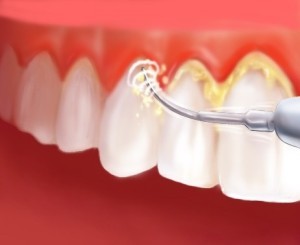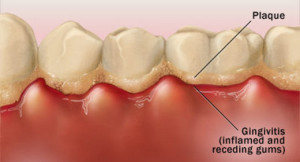Local irritants cause dental problems. This explains why men and women of all age should exercise dental care and good oral hygiene on a regular basis. The method helps fight and prevent all the potential risks of dental problems, including the sticky films we mostly call as dental plaques.
Dental plaques are colorless, sticky films that form in your teeth and gums. It has a community of 400 different types of bad bacteria that induce a myriad of oral symptoms and warning indications of dental problems, like dental caries. Dental plaques accumulate on your teeth and gum lines. This happens when your teeth get a lot of sugar without proper oral hygiene. When dental plaques left untreated, it hardens. The hard material or form of this biofilm is dental tartar. Unlike the usual plaques, dental tartars are difficult to remove which is why you need to get professional teeth cleaning.
Based on analysis, dental plaques come with different classifications. And similar with other dental difficulties, it is difficult to remove and get rid of when left untreated for a long time. The commonest classification of dental plaques is its vile relationship between your gum lines. Dental professionals recognized this classification as supragingival or subgingival. Other classifications of dental plaques are its association to the teeth’s surface and with your current dental health state. If you are suffering from a certain dental or medical issue, dental plaques have higher chance to transpire or form in your teeth and gums. Health professionals categorized this one as health-associated or disease-associated dental plaque. Although dental plaques are almost too impossible to prevent especially nowadays, preventing it remains feasible. Thanks to a after hours emergency dentist and dental care.
Dental care involves several dental strategies. The most basic and essential part is proper oral hygiene. Good oral hygiene is a preventive method composed of different home and in-office care means. Number one is daily brushing of teeth. As we all know, daily brushing fights irritants that cause dental problems. Through scraping your teeth using the soft-bristled toothbrush, you can eliminate the sticky films found on your teeth or gums. However, toothbrushes can’t reach the entire area of your mouth. This makes dental flossing vital. Dental flossing comes with thin filaments used to extract food debris and plaques found in hard-to-reach areas. You can perform this before or after you brush your teeth. With your daily contribute on dental care, dental plaques get slight chances of developing. You prevent the risks of putting up with acids and bacteria. Thus, you acquire higher chances of preventing plaques from tearing down your tooth enamel.
Dental plaques are easier to overcome, too, if you exercise healthy lifestyle. This method necessitates you to practice balanced diet. For complete care, spend time with your dentist. Regular dental visits help you monitor your oral health and see whether or not your teeth and gums have dental plaques. Dental visits allow you to experience professional dental care. Among the basic things your dentist will do are dental cleanings and examinations.
